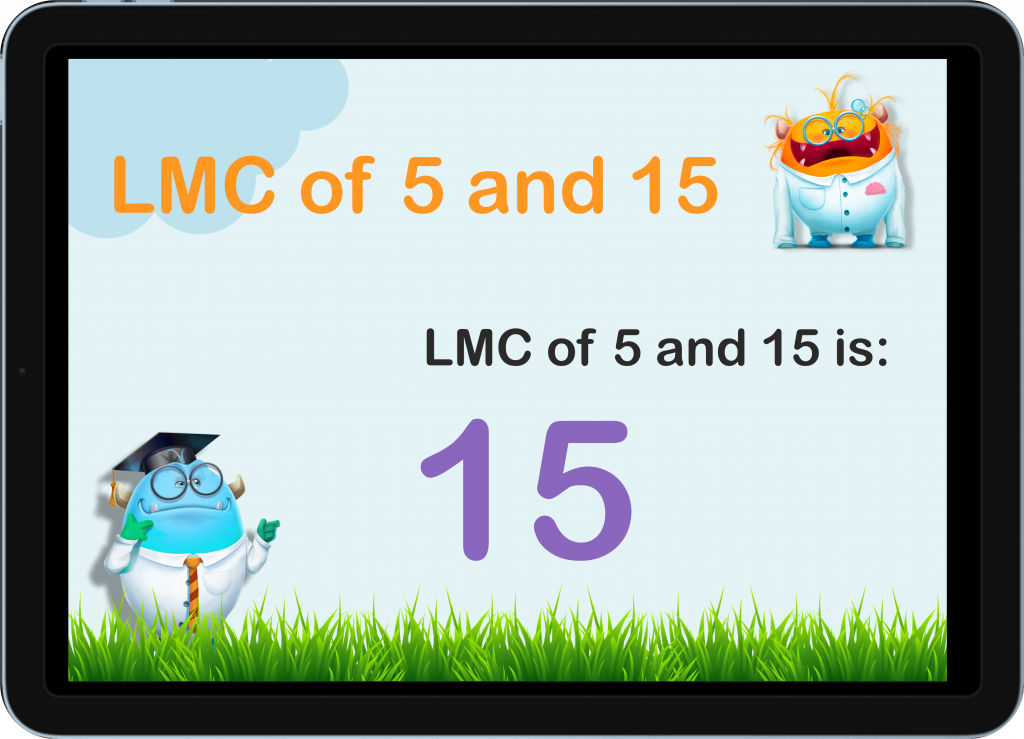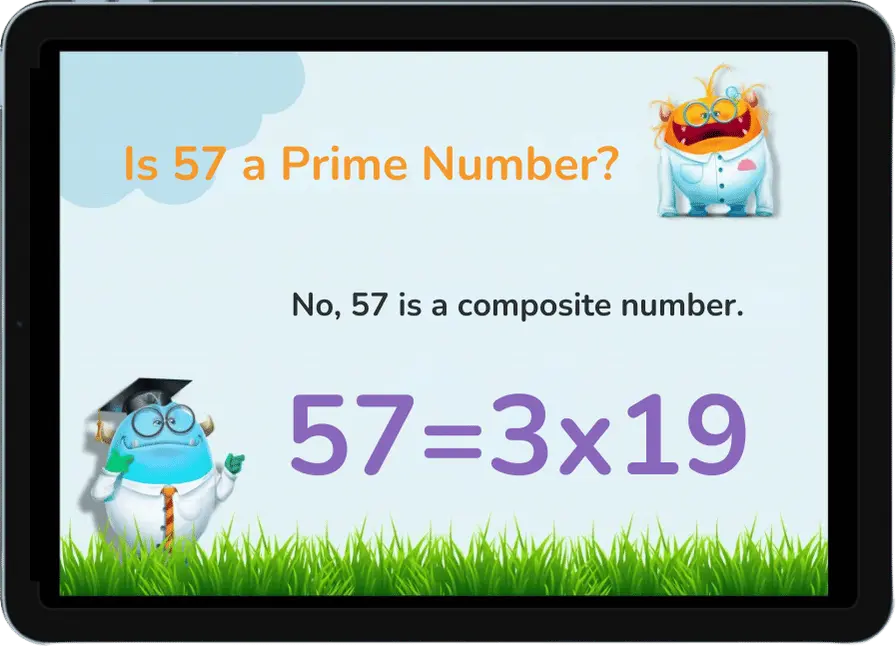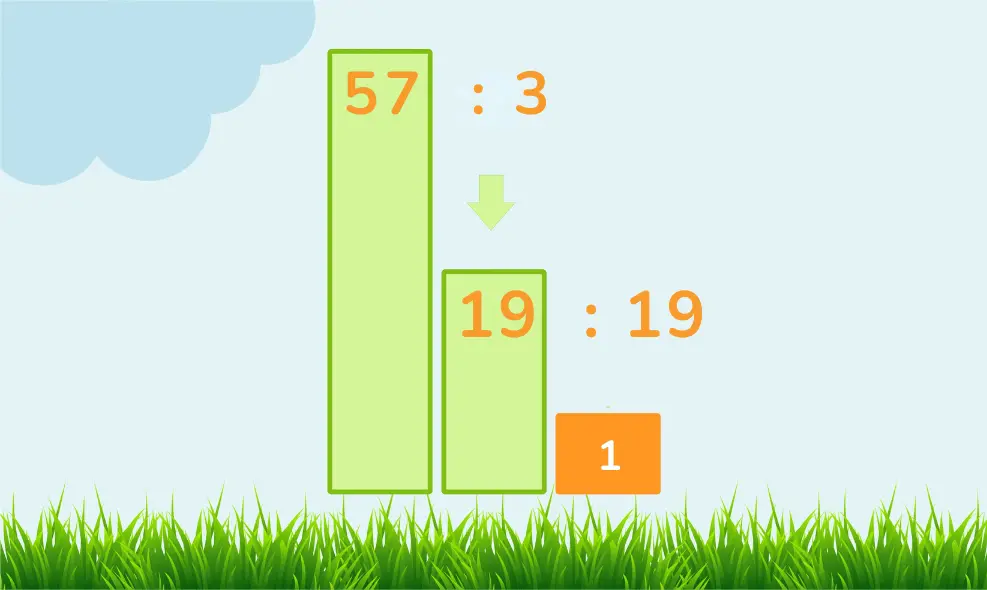Is 2 A Prime Number?
Prime vs. Composite Numbers
Greetings, young math enthusiasts! Today, let’s set sail on a mathematical voyage to determine if 2 is a prime number, and learn more about the difference between prime and composite numbers.

Is 57 a Prime Number?
Or is 57 a Composite Number?
Nope, 57 isn’t a prime number. Wondering why? Get ready, because we’re about to explore the intriguing world of 57. But first, let’s get the basics straight to understand what makes a number prime or composite.


No credit card required

No credit card required
Is 57 a Prime Number?
Why is 57 Not a Prime Number?
What are the Prime Factors of 57?
What are the Factors of 57?
Does 57 Have 2 Factors?
Is 57 a Perfect Square?
What Type of Number is 57?
Is 57 a Semiprime Number?
Is 57 a Prime Number?
To determine if 57 is a prime number, we need to check if it can be divided evenly by any number other than 1 and 57. If it can be, then 57 is not a prime number.
Why is 57 Not a Prime Number?
Let’s test whether 57 can be divided by any numbers besides 1 and 57:
- Dividing 57 by 1 gives us 57.
- Dividing 57 by 57 gives us 1.
These are straightforward, but let’s try other numbers to see if there are any other factors:
- 57 divided by 2 is 28.5 (not a whole number).
- 57 divided by 3 is 19 (a whole number).
Since 57 can be divided evenly by 3 (giving us 19), it means 57 is not a prime number. Instead, it is a composite number because it has divisors other than 1 and itself.
What are the Prime Factors of 57?

We discovered that 57 can be divided by 3. In fact, 57 can be written as:
57=3×19
This means the prime factors of 57 are 3 and 19. Prime factors are prime numbers that multiply together to create the original number. In this case, multiplying 3 and 19 gives us 57.
What are the Factors of 57?
Factors are numbers that you can multiply together to get another number. For 57, the factors are:
57=1×57
57=3×19
So, the factors of 57 are 1, 3, 19, and 57.
Does 57 Have 2 Factors?
A prime number has only two factors: 1 and itself. Since 57 has more than two factors (1, 3, 19, and 57), it does not qualify as a prime number.
Is 57 a Perfect Square?
No, 57 is not a perfect square. A perfect square is a number that can be written as the product of an integer with itself. For example, 49 is a perfect square because:
49=7×7
There is no integer that, when multiplied by itself, equals 57. Therefore, 57 is not a perfect square.
What Type of Number is 57?
Let’s classify 57 based on different mathematical categories:
- Composite Number: As discussed, 57 is not a prime number because it can be divided by numbers other than 1 and itself.
- Odd Number: 57 is an odd number because it is not divisible by 2.
- Natural Number: 57 is a natural number, meaning it is a positive integer.
- Whole Number: 57 is a whole number, which includes all non-negative integers.
Is 57 a Semiprime Number?
A semiprime number is a composite number that is the product of exactly two prime numbers.
57 fits this definition because it is the product of the prime numbers 3 and 19:
57=3×1957 = 3 \times 1957=3×19
So, 57 is a semiprime number.
Conclusion
57 is not a prime number because it can be divided evenly by numbers other than 1 and itself. Its prime factors are 3 and 19, making it a composite number. Additionally, 57 is an odd number, a natural number, and a whole number.
Finally, it is also a semiprime number because it is the product of exactly two prime numbers (3 and 19).
Understanding these properties helps us categorize and better understand the nature of the number 57 in various mathematical contexts.
Learn More About Prime Numbers
© 2024 Smartick. All Rights Reserved.
